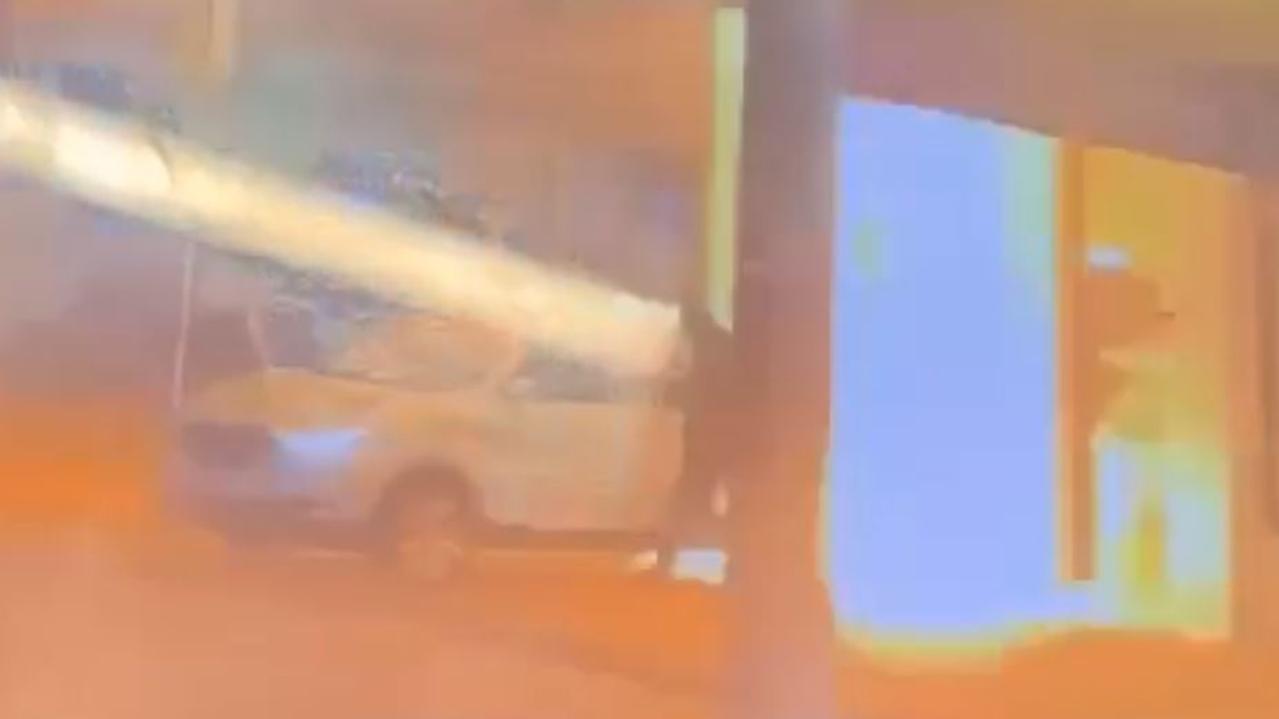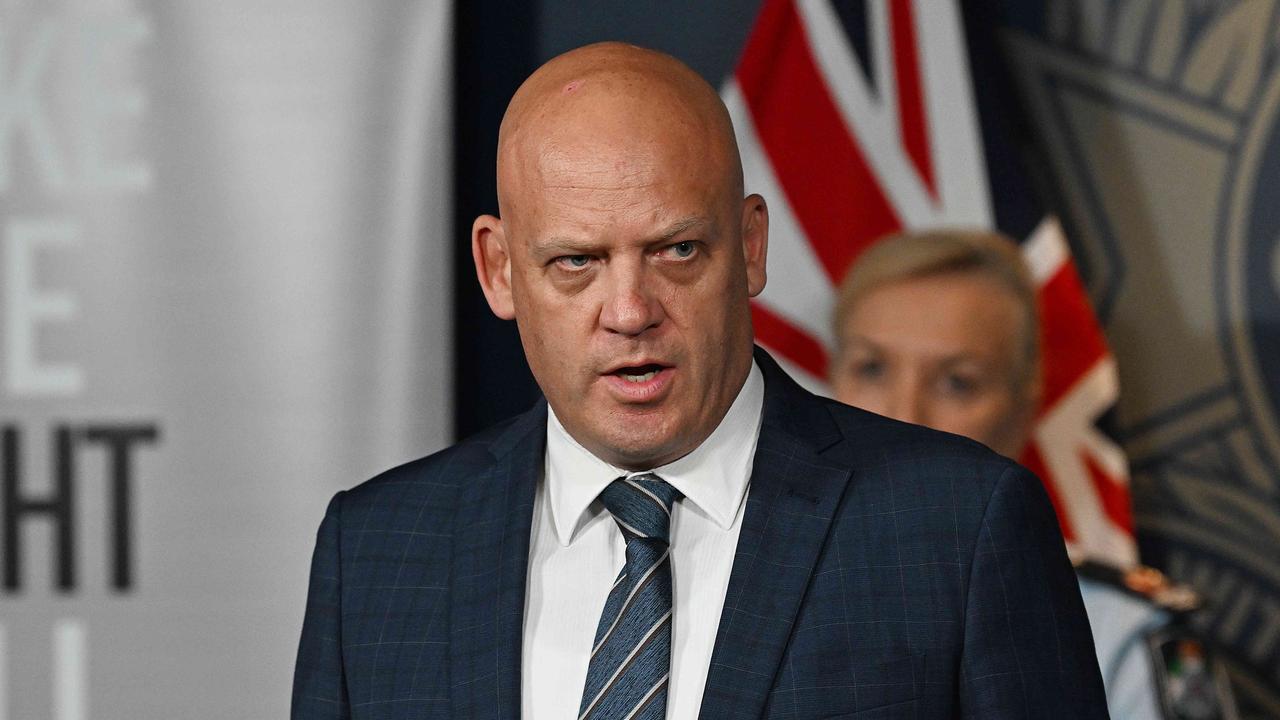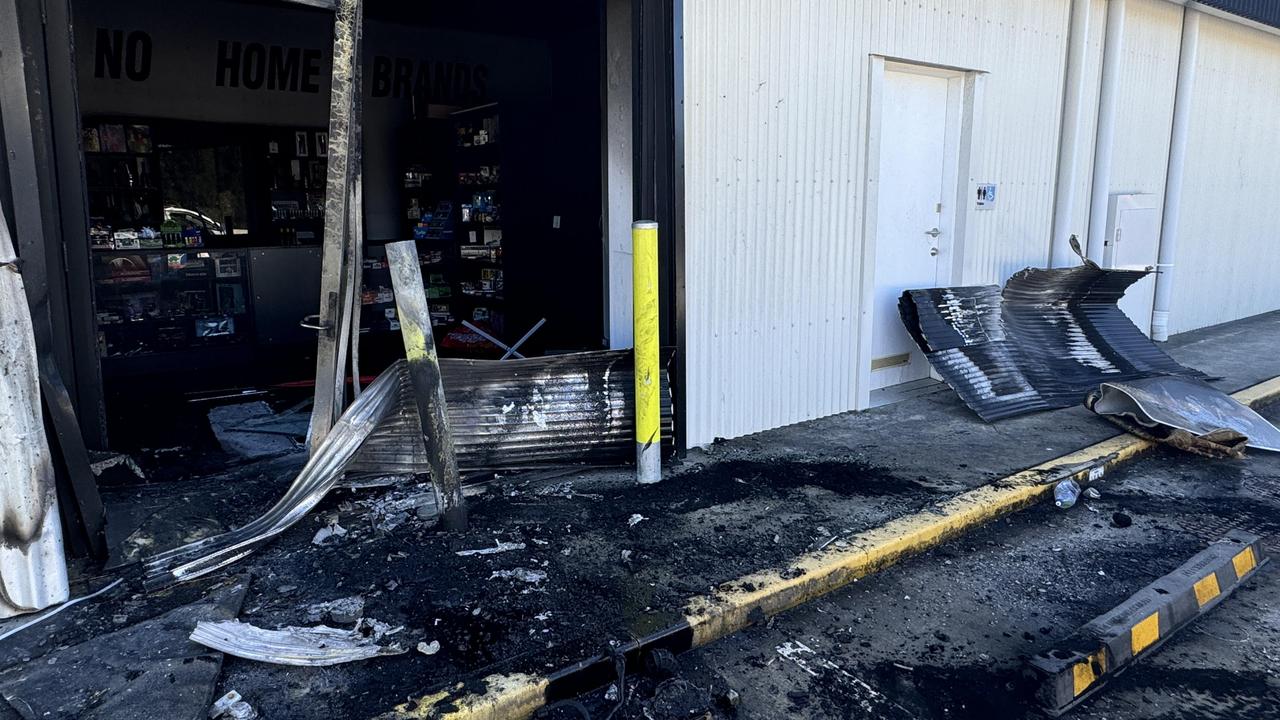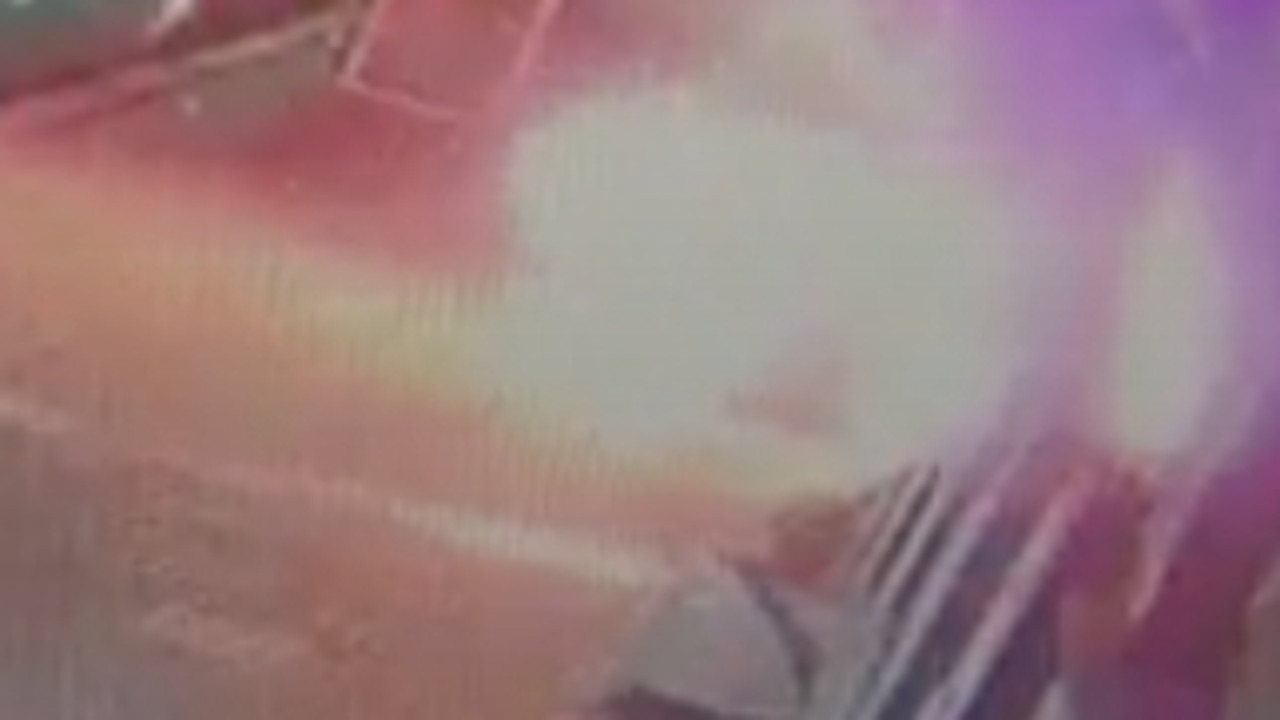Qld tobacconists face arson threat, extortion as criminal syndicates chase profits
Transnational and interstate criminal syndicates are standing over Queensland tobacconists, forcing them to pay “protection”, close up, or sell illicit cigarettes against the threat of having their shops burnt down.

Police & Courts
Don't miss out on the headlines from Police & Courts. Followed categories will be added to My News.
Transnational and interstate criminal syndicates are standing over Queensland tobacconists, forcing them to pay “protection”, close up, or sell illicit cigarettes against the threat of having their shops burnt down.
A special investigation by The Courier-Mail can reveal that as the sale of illegal tobacco continues around the country, law enforcement agencies are grappling with groups using paid for hire henchmen to extort shops. Underworld figures told The Courier-Mail that while the tobacco wars had not yet escalated in Queensland to extremes like in other states, syndicates could still try to muscle their way in because of the lucrative profits.

Gang prospects or low level subordinates stood over shops in some instances asking for “protection money”, sometimes asking them to sell illicit cigarettes produced in factories overseas.
Others might demand them to shut the shop or let them take over the business. Firebombings were retributions or taking out competitors. In some cases, legitimate businesses are being targeted in an attempt to scare them out of the market.
It comes as raids in Mackay forced five unlicensed tobacconists to shut in a three-week operation. There have also been recent raids conducted in Warwick, Rockhampton and Yeppoon.
Drug and Serious Group Detective Superintendent David Briese said there had been 16 arson attacks of Queensland tobacconists since January 2024.
He oversees Taskforce Masher, responsible for investigations into serious and organised crime that exists in the illicit tobacco space.
“It’s all about greed,” Supt Briese told The Courier-Mail. “Their profit margin is quite high because they’re not having to pay anyone else.
“So I would say, it’s a multimillion-dollar industry.
“It’s occurring enough for us to notice and have the taskforce standing up, but that is about not just investigating the offences that are occurring or that may potentially occur in the future, but also trying to prevent them from occurring before they do.”
Supt Briese said investigators believed there were more extortion or attempted extortion offences taking place than reported by stores.
He said a number of different entities or syndicates were striving to take control of the market nationally.

“I think we can safely say that the syndicates that are responsible, at the higher end, they’re not offering hundreds of thousands of dollars, large sums of money, to these people to commit these offences. Because, again, it’s all about the greed,” he said.
Nationally, the Haddara syndicate and a syndicate linked to Kazem Hamad, a convicted drug trafficker deported from Australia, have been involved in tobacco wars.
Law enforcement figures around Australia have said the high federal government excise on tobacco has created a lucrative black market that syndicates are trying to exploit. Illicit tobacco can be purchased for as low as $9-15, compared to more than $40 for a pack of “legitimate” cigarettes.

Fatal shootings have been linked to tobacco wars interstate, including the murder of underworld figure and pro boxer Sam “The Punisher” Abdulrahim. Supt Briese said police were talking with interstate counterparts almost daily. He said those national and transnational syndicates were on the Queensland radar.
“The entities or syndicates that we believe are involved, they operate here in Queensland, some of those entities are local, but most certainly they exist outside of our state and they also exist transnationally as well,” he said. Supt Briese said police had solved nine of the 16 arson attacks on tobacconists.
He urged shopkeepers to not be afraid to contact police if they felt threatened so they could thwart any attacks.

He said he felt it was only a matter of time someone became seriously injured or killed.
“Like we saw with the Fortitude Valley one on the 27th of December, where the offender, who is now before the court, set himself on fire,” he said. “It’s crazy. I think the multiple or the number of areas of potential danger, notwithstanding the fact that they could seriously injure or kill themselves, just for a tobacco shop, is just a bit mind blowing.”
While the Queensland Government has introduced harsher penalties for illegal tobacco, it’s unclear what effect it will have on the illicit tobacco market. Queensland Health is the lead agency in investigating illicit tobacco in Queensland, despite the criminal elements involved in the trade.
Queensland Health has more than 350 stores on its “high risk” list for compliance assessment or requiring repeat investigations.
Between July and the end of February, more than 1215 inspections of stores were conducted on stores suspected of selling illicit tobacco products and vapes.
Enforcement officers have seized more than 15 million illicit infringements over this time, cigarettes, 3.4 tonnes of loose tobacco and 170,000 vapes.
Compliance officers in Queensland Health also issued 1901 penalty infringement notices to
businesses for noncompliance.
Ten-fold fine increases for individuals for commercial supply were announced to $32,260, increasing from $3226. Corporations now face fines of $161,300, increased from $16,130.
A spokeswoman for Health Minister Tim Nicholls said since coming to office, the LNP had significantly boosted efforts and seized more than 130,000 illegal vapes statewide, which was triple what was seized during Labor’s last four months.
“We’ve also seized about 8 million illegal cigarettes – almost 1 million more than Labor did,” the spokeswoman said.
Asked if there was a level of frustration that police were getting people lower in the chain, Supt Briese said police would keep investigating.
“We keep digging until we get the ultimate outcome, I suppose, and that is the person who is responsible for it at the higher end,” he said.
“And that’s what we aim to do in these investigations and in this illicit tobacco environment. “Because until we are able to enforce change through our investigative actions
and again – that’s just one arm of it but that’s our aim – until we can do that, we just keep turning up.”



